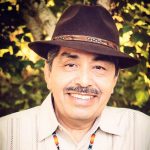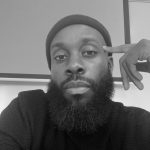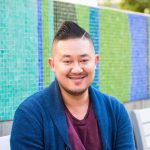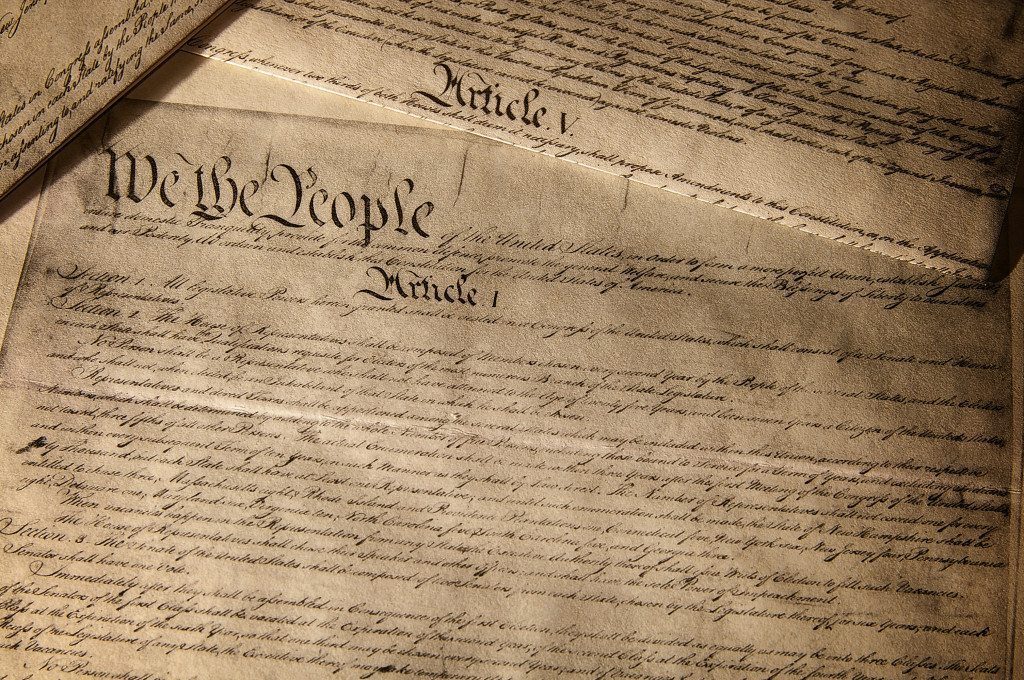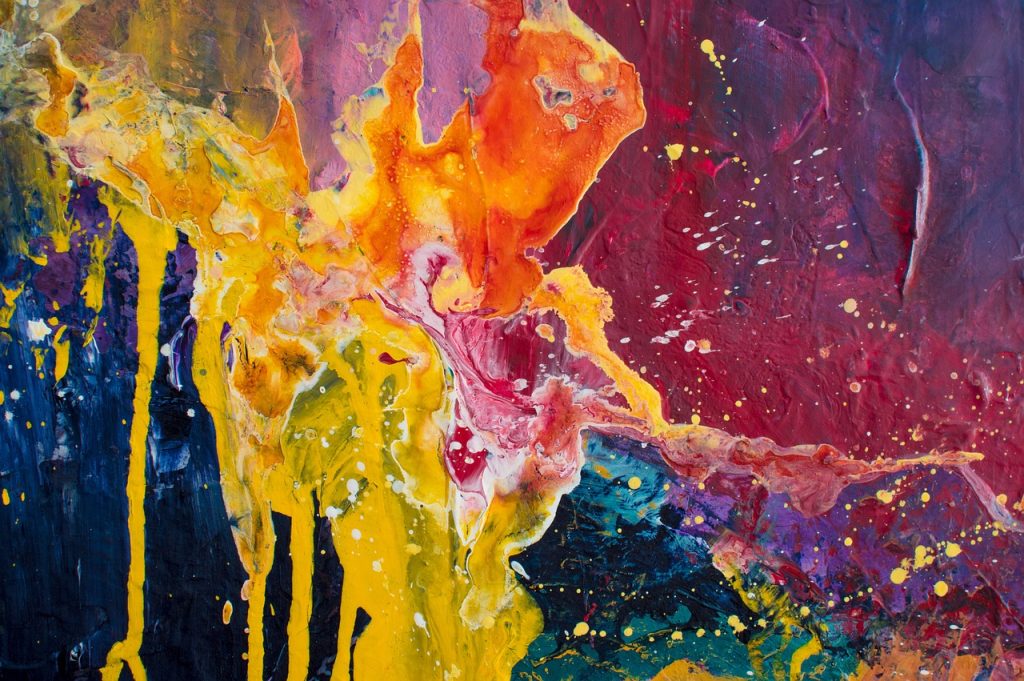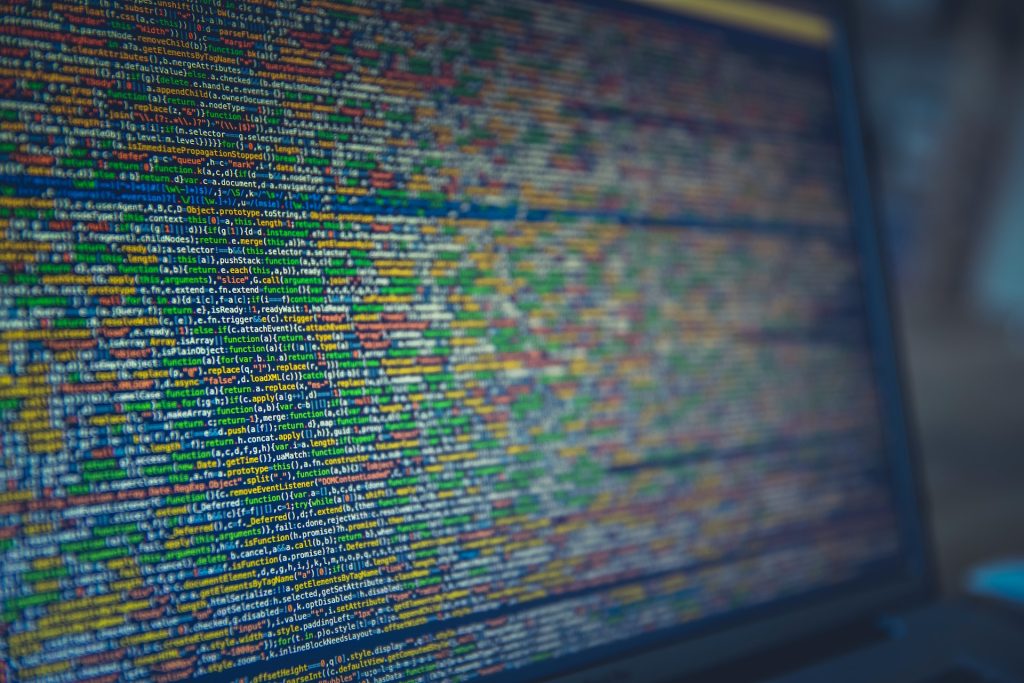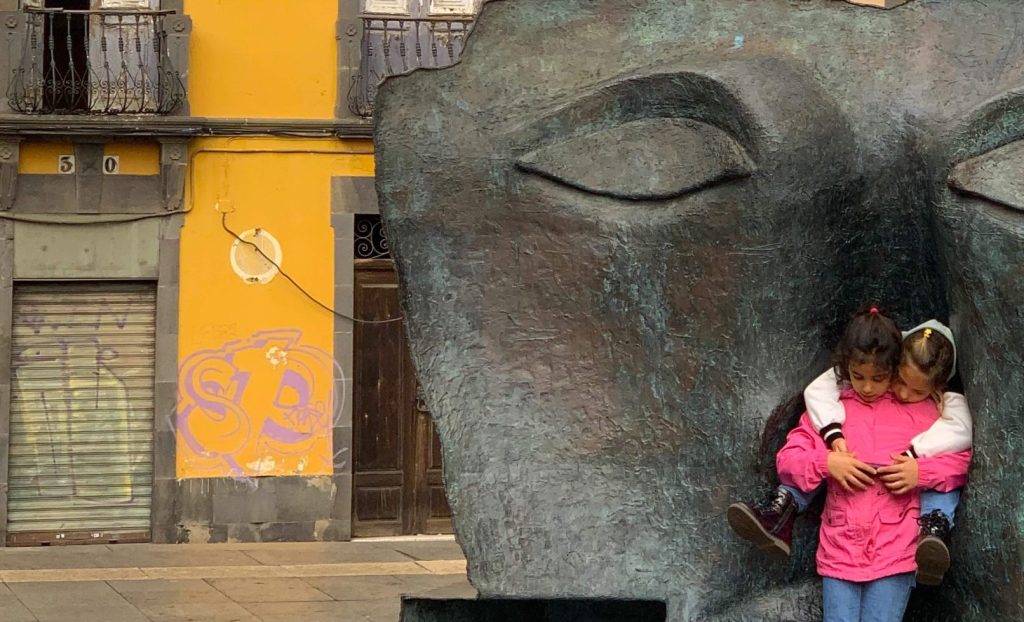Trauma and Healing for Boys and Men of Color
via Bioneers.com – an innovative nonprofit organization that highlights breakthrough solutions for restoring people and planet.
Many boys and men of color have to grapple with very potent intergenerational traumas deeply linked to the racism, oppression and systemic inequities their communities have had to endure for so long. The Covid Pandemic has unfortunately exacerbated many of these underlying dynamics, resulting in increased levels of domestic and community violence in many neighborhoods. This session, facilitated by internationally-recognized author, community leader and healing practitioner Jerry Tello, offers an intergenerational conversation among young men, elders, and middle-aged men of color. They explore the deep traumas they and their communities suffer from, and how to develop strategies of responsibility and accountability that face the truth, but also create conditions for deep healing and prevent these wounds from undermining our families, communities and selves.
With: Jason Seals, professor of African American Studies at Merritt College, with a long career in youth development; David Bouttavong, a Fresno, CA-based first generation queer Lao American activist with extensive experience working on issues affecting young men and boys of color.
This discussion took place at the 2021 Bioneers Conference.
Jerry Tello | I’m really, really pleased that Jason Seals and David Bouttavong agreed to join us today. It’s an honor. As we sit here talking, I remember we were sitting at Sons and Brothers Camp together in a circle, a prayer circle with that fire going. And the three of us amongst the whole number of folks from the Brotherhood of Elders, National Compadres Network. We laughed with each other. We joked with each other. We cried with each other.
And I want to begin that way, because a lot of people don’t even realize and recognize our sacred interconnectedness, as Indigenous and people of color, that way. So, I want to just thank you both very much, respect both of you very much for who you are and what you do. And we’ll begin there. So, brother Jason, I’ll pass it to you.
Jason Seals | I’m Jason Seals. I want to acknowledge my mother and my father, Thomas Seals and Cheryl Seals – two individuals that gave everything to allow me to be the man that I am. I’m very thankful for all of the contributors that have supported me on my journey. And in return, I’m in service to my community. A number of years in education, but I think most importantly, just my commitment to being in service to my elders and to the younger folk in my community.
Jerry Tello | Thank you, brother Jason. And I also know Jason’s a professor. He’s just got so much going, but one of the sacred parts of who Jason is, and we invite him to talk about, is he’s a dad. And man, he loves that little boy. And so, we’re going to talk a little bit about that relationship, because when we see a reflection of ourselves in a younger state, what is our responsibility there? So, and with that in mind, I want to on pass this to David Bouttavong.
David Bouttavong | My name is David Bouttavong. I use he/him/his pronouns. I’m first generation Lao American, and also part of the LGBTQ community. I’m a child of refugees. My parents, they’re originally from Southern Laos, but came here so that we can have a better opportunity at everything, right? I represent the Central Valley and I rep it hard. I really believe we are the bread basket of the world. And we give all these fruits and all these veggies to the world, but sometimes we don’t have much for ourselves. I have a background in reproductive health injustice. That led me to working with young men and boys of color, and with a lot of incarcerated young people.
And that’s naturally how I met Maestro Tello, who is on here with us, and other elders in the community. I recently transitioned last year to working with people who are experiencing homelessness in the Central Valley. Sometimes we often walk by those folks and see those folks holding signs. So, that’s kind of my job now, is being one of the first responders to that.
Jerry Tello | Thank you. And as we begin this conversation,… there’s a lot of things said about us, about men and boys of color, and especially there’s a narrative in my traditional culture. When young men become a certain age there’s a naming ceremony to connect them to their people, to connect them to their traditions, to connect them to their ways, so they don’t forget, right? But also to acknowledge the beautiful spirit that they bring. And unfortunately, in this Western society, especially in the educational system, they try and strip us of those things.
And what a lot of people don’t recognize is that those are the things that keep us rooted. Those are things that keep us grounded. Those of the key things that keep us focused, especially in light of the racism and oppression and everything that goes on in the world. So, I want to begin there, because usually that’s not where the narrative begins when we talk about us. It’s usually about the trauma or the problems or the issues. And I want to ask Jason to talk a little bit about the history and culture of who we are as a people, who your folks are as a people, and what are those beautiful historical-based assets, blessings, strengths that are embedded in the cultural root of from where you come?
Jason Seals | Wow. I appreciate that so much, because I’ve been thinking about this a lot, specifically as a college professor. I teach a lot of history courses. And I remember a student saying to me one day, “I really appreciate all the information that I’m getting, but sometime I feel depressed or heavy coming out of your class.” And it made me really examine what I was offering. It made me be more thoughtful about what stories am I sharing, and how some of those stories might be re-traumatizing, or might be pulling off the scab. And I began to shift the way in which I shared my curriculum, because to the question, I really wanted to explore the goodness, the history, the legacy, the global contributions.
One of the things that I appreciate is this non-verbal dynamic that happens between men of African ancestry, we get to connect and express gratitude and love in a way that sometimes it’s unspoken and it’s almost nonchalant, but it’s the way that it happens. If I was to go outside right now and run into someone that I know, we’re going to embrace.
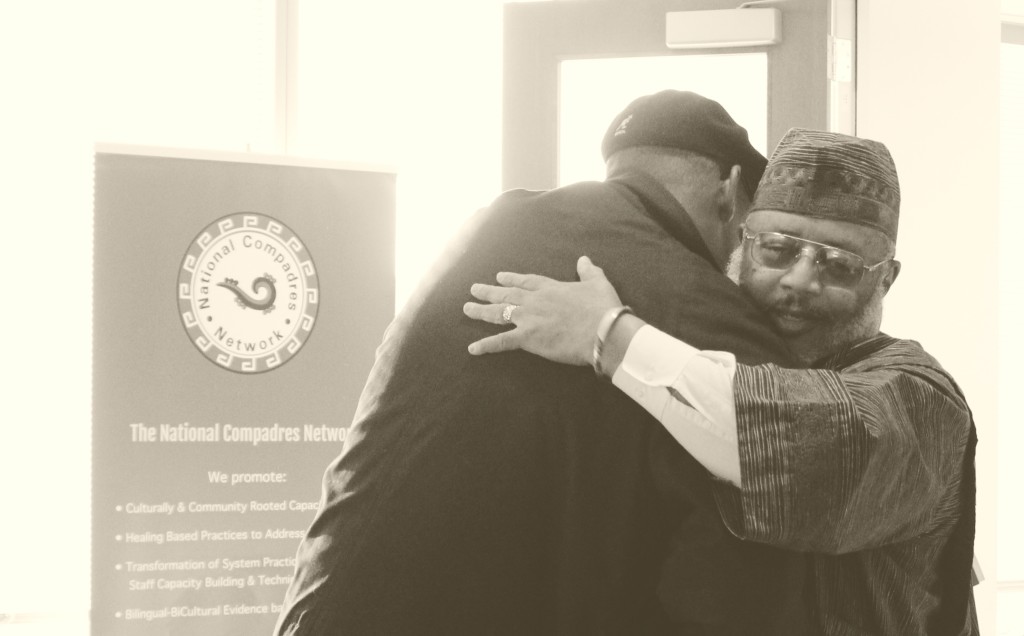
And for some people, that embrace might not mean much. But for two men to embrace, there’s something very powerful about that. There’s something very spiritual about that. There’s something very grounding about touch that is healing, acknowledgement that is healing, in a society where our identity and who we are is often minimized and where we might feel invisible. So, that love and that communalism is so much present. I think about even the way that we are with our families.
My mother cooks every first Sunday. So, every first Sunday we all gather at my mother’s home and the meal is really an opportunity for us to connect. We might play dominoes, we might play Scrabble, we might be watching sports, but the meal allows us to commune. And one of the things that I appreciate, which is kind of an interesting dynamic, is that you never know who’s going to show up. Once you become family, you’re never not family. Say you have people that might be in relationships and they break up – my mother says, “You might break up with them, but we didn’t break up with them.” So they’re still in the family. So we have family and we have fictive kin.
F-I-C-T-I-V-E. Fictive kin. Folks you might have no blood relation to, but they’re family. And for me, learning that, I had to travel back to the continent of Africa, to something that was very normal there. I learned a practice that dates back centuries and centuries, a belief that you couldn’t be without family. And that just rocked my spirit in a very loving way. And if you didn’t have family, per se, for whatever reason, that you could be gifted family, that you could become integrated into a loving space with people that actually see your humanity and want to pour into you. And so, when I think about culture, I think about, like I said, love, communalism, family.
Jerry Tello | You touch on a whole number of things there, Jason, that even some of us don’t realize why we’re pulled to these relationships, why that traditional food, why that is so sacred to us. That sacred food that your mother cooked, that’s a generational memory. That’s a recipe that goes generations back. It’s a vibration. When you just smell that, you smell that culture food, it’s like, “Oh, dude. Man, it’s going to be a good day.” Right?
And I remember as a kid, growing up in Compton and there was drive-bys, all kinds of stuff. And so there was a level of stress there. But if I wake up on a Sunday morning and I smell tortillas cooking, it was like, “Oh, my grandma’s here. She’s making tortillas.” And it was like this aromatherapy, man, that just kind of calmed me, made me happy to know that I was going to get nurtured.
 I was going to get nurtured. And that ability for people to be nurtured, the need for them to be nurtured. Usually we don’t think about that when we talk about men. But that’s what we search for, the nurturance. And if we don’t get it in a good way, then we’re going to look for it in other ways. So, I appreciate you sharing the different levels of that, and especially the ones that are connected to our cultural ways. And it also brings to mind that when we see each other we haven’t seen…we get loud. It’s like our spirit just get loud. And what people don’t realize is when you live in a society where you’re not welcomed so much, or you’re not seen in a good way, when someone finally sees you and say, “Fool, what’s up, man? Where you been?” It’s like, “Man,” there’s a hole there that gets filled. That embrace. That nurturance.
I was going to get nurtured. And that ability for people to be nurtured, the need for them to be nurtured. Usually we don’t think about that when we talk about men. But that’s what we search for, the nurturance. And if we don’t get it in a good way, then we’re going to look for it in other ways. So, I appreciate you sharing the different levels of that, and especially the ones that are connected to our cultural ways. And it also brings to mind that when we see each other we haven’t seen…we get loud. It’s like our spirit just get loud. And what people don’t realize is when you live in a society where you’re not welcomed so much, or you’re not seen in a good way, when someone finally sees you and say, “Fool, what’s up, man? Where you been?” It’s like, “Man,” there’s a hole there that gets filled. That embrace. That nurturance.
So, I want, to ask David the same thing. We talk about culture. You shared a story when we were prepping for this, about your dad and fishing. And it kind of made me laugh, because you said you didn’t like fishing, but it was a cultural thing. And so, the same question to you, how is culture and tradition and all of that, how has that served you? And how do you think it serves men and boys, in this sense of sacredness?
David Bouttavong | I really think it serves and sustains us. Once you have all that instilled in you from your parents, or from whoever in your life, it kind of sticks with you. My dad would always take me on these adventures or excursions on Saturday mornings, right? He would always tell me I have to wake up early. And one of them was going fishing. And fishing’s cool, right? But I don’t want to stay out all day and fish and mess with the worms and stuff. I can do that. Don’t get me wrong. I can do it, but do I want to do it all day? No. I’ll catch my fish and I’m good to go.
I’m the only boy and I’m the youngest. So, he took me on those excursions, even though he probably knew I didn’t like them so much. We would go up to the slaughterhouse. There was pigs, there was cattle, there were duck, there were chickens, and there were also other young men, Lao men, with their sons, as well. It was a thing, right? Those were the moments that I grew up with.
Do I still do that now? No. But it was his way of bonding with me and also showing me how he had to do things back in Laos. Those things I still remember and could still do, actually. If you get stuck in the wilderness or something, I can still fend for things. He never really spoke much about like, “This is what you’re supposed to do as a Lao man, or a Lao boy.” He just kind of had me with him and I tagged along.
Jerry Tello | And as you’re speaking that, I worked with lot young men that wish they had that moment with their dad. That wish they knew how to survive in a wilderness. And I think often we don’t recognize the sacredness, the sacred moments. And sometimes it’s fishing, sometimes it’s on a basketball court. In my neighborhood it was shooting dice, or at the barbershop. Those things.
Growing up in Compton, I knew the barber shop was really important, especially for my African American relatives. That barbershop was a sacred place where you’d go and meet all kinds of folks and get counseled, and that still exists in many communities.
So, the question then becomes, what is it that we struggle with? Because there’s another side that we recognize – that there’s a lot of men and young boys who don’t have that, don’t have a dad to take them fishing. I want you to talk a little bit about your son, Jason, because he’s blessed to have a father like you. How many men do not have a father like you? Do not have a father present. Or their father is very wounded from generations of racism and oppression and denigration and all kinds of stuff that come to our people. Can you talk a little bit about that?
Jason Seals | Part of my story is that my father was incarcerated for the first 10 years of my life. And I remember going through my own journey, wanting to know, did he love me? Why didn’t he write me back at times? I had a teacher Dr. Milner, who one day say to me, “Jason, have you been incarcerated?” And I responded, no. And he said to me, “I just want you to create space in your story for your father’s humanity as well.” And he said, “I’m not telling you to forget what you’ve experienced, but create space for him.” And that was really a turning point in my life.
My father not being there caused me a lot of pain, but here’s the connection. I remember this was months before my son was born, I said I didn’t want my son to be a recipient of my pain. I didn’t want to gift him what I was carrying from my father not being present. And it made me really sit down with my father and have some really hard conversations, in a way that now we’re closer. Now we’re able to speak. Now we talk more, in a way in which I never thought was really possible.
And so for my son, I’m not even sure he understands the magnitude of how he’s been so much a part of my healing. And when we talk about our sons, I think it’s so important that we give our sons not only what we didn’t have, but give them an opportunity to be in ways we haven’t been. And one day my son, he randomly says “I love you.” He randomly in the morning, says, “I want to give you a hug.” And I come from a very loving mother, so it was normal, but sometimes I’m still baffled by like, “Wow, this little person loves me so much and sees me so much.” And what I appreciate about it is that he just sees me. I don’t have to be a teacher. I don’t have to be doing this or that. He just sees me.
And so, I’m glad I’m able to give that gift of my presence. And I recognize my experience often reflects so many brothers in my community that didn’t have a father and didn’t have a model. And unfortunately, we had models that were in our community that weren’t the best models. But I also want to change that narrative a little bit too, because there were some people selling drugs in my community, and some people that committed petty crimes in my community. And we looked at them as being very deviant and criminal. But I can say that some of those brothers were some of the reasons why I stayed in school. Those brothers also showed me a lot of love and told me, “This life is not for you.” And to me, for them to see my value, and maybe they were looking at themselves and said, “Wow, I wish I could have done this. I wish I could have been on this path,” and push me in different direction, that’s a narrative of love too.
I think that we have to uplift the complexities of our people and recognize that you’re not just one thing. So, that person that’s selling drugs, he has a story. And we need to uplift that story. We just can’t condemn people. Because a lot of folks think it was just my mom or it was just my fortitude that allowed me to be where I am right now. There’s a lot of people that are unnamed.
There’s a lot of people that wasn’t walking the straight path that gave me little nuggets or gave me encouragement, or when I was playing basketball, came to the game and was like, “You need to continue to play basketball,” right?
Jerry Tello | So much there, Jason, that you shared. But I want to start with your son’s love, because what a lot of people don’t realize is all of us have that love in us. And we want to be loved. And it’s a central part of who we are, our love. And we are made to believe that’s an anomaly. And I remember walking down the street with my dad. And there was a gentleman that used to sit outside the liquor store right there. Name was Mr. Joe. And my dad, when we walked by, he’d say, “Morning, Mr. Joe.” And he’d say to me, “Say hi to Mr. Joe. “Hi, Mr. Joe.” And he was homeless. He had his bottle. And he had his little cup. And one day we were walking that way and Mr. Joe had his hair all up in the air. You could tell he had a hard night. And I started laughing. I started laughing. My dad said, “What’s the matter with you?” I said, “Look at Mr. Joe. Look at his hair all jacked up. Look at it.”
My dad slapped me. “He’s an elder.” He said, “Don’t be thinking you know something about anyone’s life. Maybe you’ll be there someday.” And I got punished for that, about judging. Because I was seeing and judging him based on the woundedness and not on his sacredness. My father said reach to his sacredness, right?
And not to sidestep the woundedness or the struggle. I know, Jason, you have worked with young men that struggle a lot. And I wonder if you can talk a little bit about that? About that pain that you’ve seen in young men and older men and your reflection on that?
Jason Seals | I think the woundedness in my community comes from the ways in which anti-Blackness has manifested itself in our communities, and how whiteness has become almost a way in which that people have learned to operate, that there are some social norms, some social ideas, and the ways in which people have learned to be. And so for me, I think it’s really important that we understand the origin of these things, the harm, the ways in which people have been attacked. And I think that’s the source of the woundedness, because when anti-Blackness manifests itself, people internalize these narratives. And so, I think folks of African ancestry have also internalized these narratives. David, what are your thoughts around the woundedness that you see, or that you’ve experienced when working with our boys?
David Bouttavong | I see the woundedness staying with them for a very long time, and then also going from one generation to the next. Not really taking the time to really deal with that. I know we have a lot of more resources as far as trauma-informed services and things like that, but it’s still there. The stigma is still there. We need to really uplift those people who are doing the work and also going in to seek that help, because there’s not enough of it. And it’s really up to us to encourage those folks to seek that kind of help within the communities. And also sometimes acknowledging those barriers, right? Even though we have all that within our reach, sometimes it’s not really within our reach, because it might not be culturally responsive. So, I do see more people and young people kind of putting mental health and trauma on their radar, but sometimes it’s also not accessible..
Jason Seals | I think that’s the piece that becomes, to me, almost triggering for myself, is when I see the wounds that maybe other people haven’t seen, And I feel like in my community, and I could speak just for people of African ancestry, the deep wound has come from not just modern day ills, but from historical ills. People not knowing their culture, people not knowing their identity. So, a lot of the work that I do to support healing, is actually to help people reconnect to their African self, right? Reconnect to the culture that permeates before enslavement. Reconnect to a part of themselves that they’ve been sometimes conditioned to reject. And that’s when I see a different love begin to permeate for self. And when that love permeates, then it becomes almost a natural repellent to the trauma. And it begins to give them a way to engage with those wounds that supports wellness. And so, that’s the piece that I think gets lost is, we have the tools. And I think for me, the healing lies in the culture. And I’m not shunning traditional therapy. Traditional therapy, for some, works. But what I’ve seen work, and that’s just as powerful, is reconnecting to culture.
Jerry Tello | Yeah. And I think when we talk about culture, we’re talking about a sense of recovering that interconnection and that generational guidance and general racial leadership, generational love. But also the accountability that comes from that, because I’ve seen in the circles that we’ve been in, where someone is out of pocket, and being able to go to that person in a good way and say, “Hey, young brother, let’s talk about this.” And I think in our community, that’s another responsibility. And I want to lift this up now, because part of my work has been working the issue of relationship violence. Some Chicano or Mexicano people say, “Well, that’s part of your machismo, that’s part of you being macho, and that’s part of your culture.”
No, it’s not. That’s not a part of our culture. That’s part of the colonization that has been integrated that we believe is part of who we are. Because the true reality for many of us, and most of us is, that were matrilineal populations, where the women are the center. And I remember even in Compton, when I grew up back in the ’50s and ’60s, it was not okay for you to be violent or disrespectful in a relationship. In fact, if you did that, the homies in the neighborhood would go after you, because you weren’t supposed to do that. What happens now, after generations of removing our culture and those checks and balance systems, we don’t have those cultural ways of accountability.
Part of our healing is recovering the sense of sacredness in our relationships. Honoring of women, the honoring of children, the honoring of everyone on the gender spectrum, and your identity spectrum. We have people that come with many identities. And that’s how big our culture is. Regardless of what’s going on in society, if somebody stands with you, then you’re going to stand with them. And so, I wonder if we can talk a little bit about some of the things we need to do.
David Bouttavong | It makes me think about people that I didn’t have growing up, right? You had said something about identity and it sparked a memory in my head of myself at Lao New Year. I was with my own friends. I saw my dad from a distance. He was with his boys. They had Hawaiian shirts on, so they kind of stood out, right? They were sitting and they were having their beer at the temple. Yeah, we have beer at the temple. And I went over to say hi to him. And this is about two years ago, so pre-COVID when we had gatherings. He was with his boys and I went up and I said hi. And they asked me that question, right? They’re like, “So, when you’re getting married and stuff and having children?” I’m like, “Oh, shoot.”
I never talked about my sexuality with my dad’s friends or anything like that. I was like, “Well that’s going to be a little bit different, right? If I get married, I’m not going to necessarily marry a female identified person, right?” They’re like, “Oh, okay.” And then they said something actually kind of shocking next, to me, it caught me off guard. They’re like, “You know what? We just want you to be happy. So, anybody you marry, anyone you bring in, that’s going to be our family too.” And that kind of took me back. I kind of got choked up, because they said that in front of my dad.
So, I know there still is like that hope and that world of acceptance out there, even though we think like the OGs, they might have a certain way thinking, sometimes you have to put yourself out there, because there’s younger people that’s going to come after you. So, that was like a moment for me to hear them say that in front of my dad, so. Powerful moment.
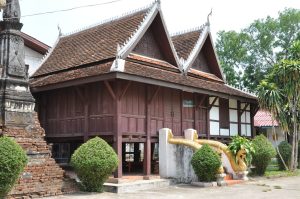
You know what? Throughout the years I’ve come to kind of a simple, I guess, conclusion, if you will. Maybe not final, but we need to start at the very beginning and the basics of our own traditions and cultures, right? Do things the way that our ancestors did. Our gatherings that we have are those teachable moments. For me, I had a big light bulb moment many, many years ago when I was able to go to the motherland – Laos. With my immediate family. It’s just me, my mom, my dad, my sister. We really absorbed a lot about the way that our people did things. We didn’t mind staying at the village with all our cousins and relatives, and our uncles and aunts. Yes, it’s like a basic house with plywood and on stilts, right? That’s how the village is, but we learned to embrace it and we enjoyed it, because that’s how our ancestors lived.
And also, for me, it’s embracing our masculinity and our feminine side and others in between. There’s no right or wrong in that kind of way of exploring ourselves. Those are kind of the things that I’ve learned.
Jerry Tello | Wow. So, Jason, what do you think? I mean, what are some steps that we need to take as men of color, to really address our own woundedness, and to bring back that sacredness where we sometimes struggle?
Jason Seals | I would say something very simple too. Just learning to ask for help. I was having this conversation yesterday with my sister and she said to me, “My son is going through all these struggles that I see the Black men around me having.” And as she was having this conversation with me and sharing, I began to think about myself and I said to her, “I struggle with the same thing.” If I’m having difficulties, whether it’s emotionally or just stressed, I have a hard time reaching out to the support network that I have. And I was sharing with her, I have to unlearn some of these ways that I’ve been conditioned – that I have to do it alone by myself and that’s part of being a man. And so, we have to unlearn some of those things.
Those are some of the toxic things that I feel like are very much a part of this society that I’ve internalized and that some other men have internalized. It’s actually not reflective of our community. So, we really need more spaces where we could just be and talk about our experience, whether it’s around stress, trauma, relationship issues, financial issues. We need space. Space not to be warriors in our communities. Spaces where we don’t have to be a leader in our community. Spaces where we can be vulnerable. And I think it’s a practice. I think it’s a practice to become vulnerable. It’s really a survival tool to almost disconnect that part of yourself or hide that part of yourself. There’s work to be done in that, to create spaces where we can be free. Be free of expectations and not be perfect. We can make mistakes. We don’t have to say the right things. We don’t have to be “on point”, but just be human.


